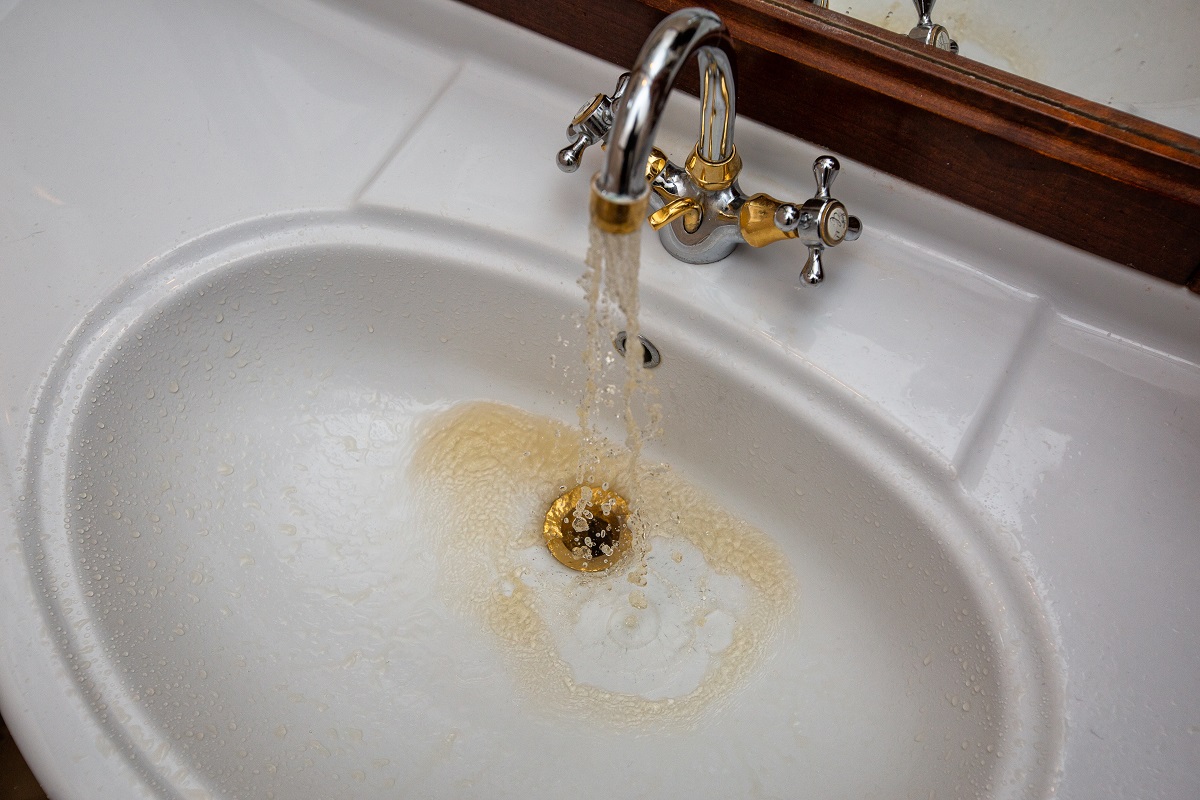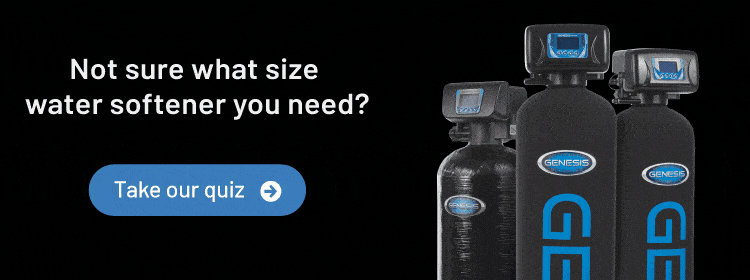What To Look For Before Buying An Iron Filter
Posted by Discount Water Softeners on Apr 8th 2020
Iron Filtration Systems

Iron is one of the most common contaminants found in well water. Iron, along with manganese and hydrogen sulfide, are the main causes of rust and odors in your drinking water. The presence of iron and manganese will stain clothing and fixtures; the powerful rotten egg smell is directly related to water containing hydrogen sulfide. Iron filtration systems typically use the process of oxidation to flush iron and manganese from your water. Unregulated well water is the most likely type of water to have a high concentration of iron. Even a miniscule amount in water can cause discoloration in tubs, toilets, and sinks. Where should homeowners begin, to rid their water of these pollutants?
Before buying an iron filter, have your water tested. The best way to remove iron is knowing your water conditions. The type of iron you’re facing, (ferrous, ferric, or organic iron) your pH levels, temperature, alkalinity, and dissolved oxygen content, will all play a factor in determining the best iron filtration method.
After testing your water, it becomes easier to select a filtration system tailored to your situation. In the case of low ferrous iron levels, a traditional water softener using ion exchange may be an adequate solution. If your water contains a concentration of ferrous iron in 7 ppm to 15ppm, a specialized filter that uses oxidation and filtration is a better fit. When iron levels reach a more extreme level, your household may be need a chemical feed pump in addition to oxidation and filtration.
Once equipment is installed, retest your water. Water derived from wells is particularly susceptible to contamination, so test at the tap, and at the source. The only way to make sure your iron removal system is operating as intended is to recheck after installation, and periodically (at a minimum of once per year, but ideally, every season.) Protect your investment: follow manufacturer guidelines for proper maintenance of your filtration equipment.
Will My Water Softener Remove Iron?
If your home’s water struggles with ferrous and ferric iron, organic, iron bacteria, or concentrations of ferrous iron exceeding 3-5ppm, a water softener alone cannot be used. Either the iron will pass through the unit, unaffected by the ion exchange process, or worse, could lead to clogging and premature fouling of the resin bed.
Water with ferric iron contains particulates, so it can be filtered out with the appropriate media. When it comes to dissolved iron, it will require oxidation to change it from a dissolved state to particulate iron for removal. Filtration systems that use a powerful oxidizer, like Ozone, AIO, or birm, can extract dissolved iron out of well water supplies. Bacterial iron is a different ballgame—a nasty, thick, sludgy configuration of iron, that can stick to everything it touches, congesting and choking your plumbing.
Proportional chlorination is the best method for bacterial iron removal. It’s a labor intensive process to remove bacterial iron, and one that may mean a larger initial investment to treat. Unfortunately, bacterial iron is fast-growing and once you have it, difficult to get rid of. Another form of treatment is shock chlorination. For shock chlorination to be effective, the entire depth of the well and distribution system will need to be exposed to the chlorine to completely disinfect and destroy this type of iron.
Attempting to use a traditional water softener for certain types of iron removal will reduce hardness removal capabilities. This compounds the problem for homeowners, who will then own a water softener incapable of softening water, coupled with smelly, rusty, water as well. While water softeners play an important role in making your water just right for your home, it may not be the only equipment you need.
What To Know
Iron filters are similar in appearance to conventional water softening systems but without the salt tank. An important distinction is that when water passes through the filter media of an iron filter, soluble ferrous oxidizes to a ferric state. Therefore, becomes insoluble and will be trapped. Depending on the condition of water and filter media, pre-oxidation will be required to reach the suitable dissolved oxygen levels for iron removal. Water softeners are effective for low iron concentrations, and only when all or most is in a soluble state.
Iron filters can solve a multitude of water problems by removing iron, sulfur, and manganese. These minerals can be dissolved and flushed away, leaving only clean, good tasting and smelling water. Iron stains, bad odors, and musty tastes are a thing of the past when you choose the correct filtration method. All too often, homeowners believe that there is a one-size-fits-all solution for water treatment; every home’s water is unique, especially when it comes to well water. When you start to dread turning on the tap, it might be time to consider an upgrade or supplement to your home’s water treatment system. Iron filters are a permanent fix to help get your home’s water to the standard you deserve.

